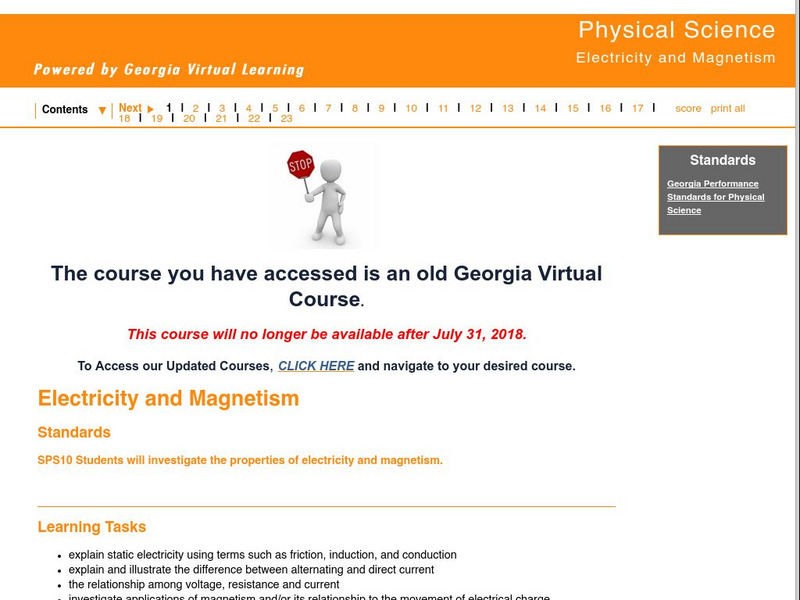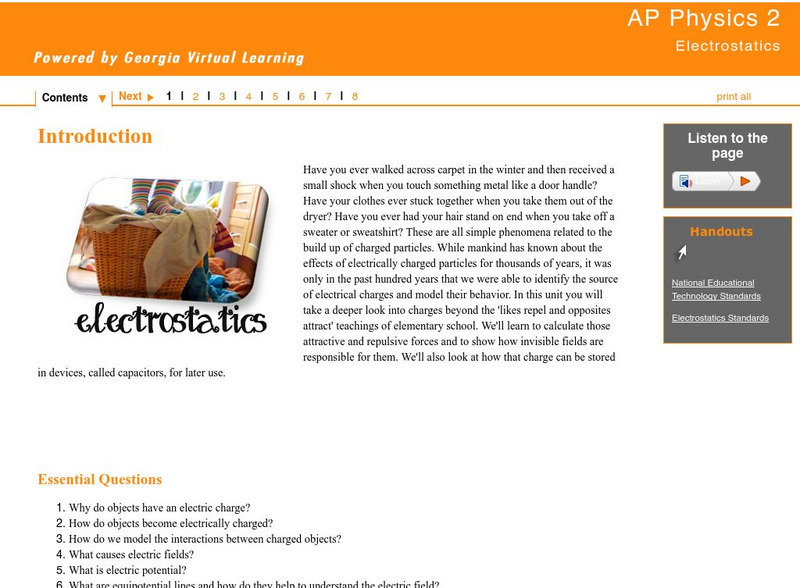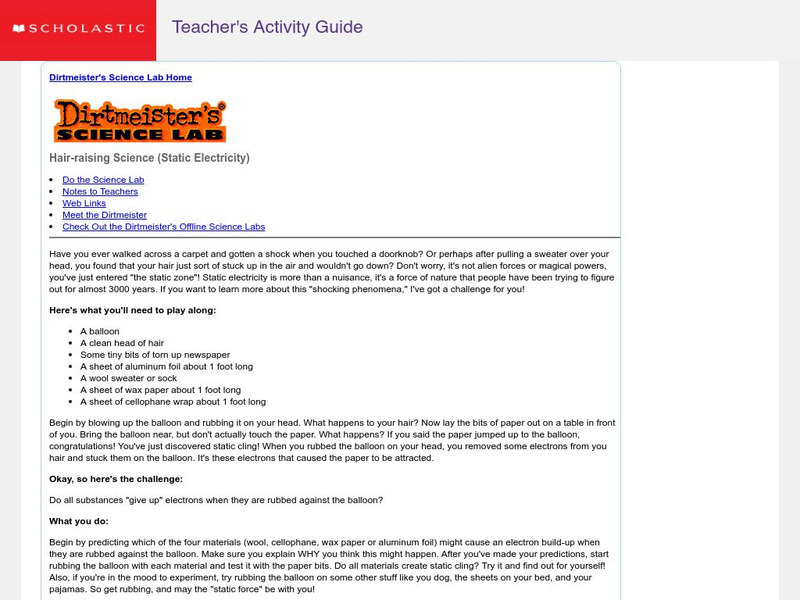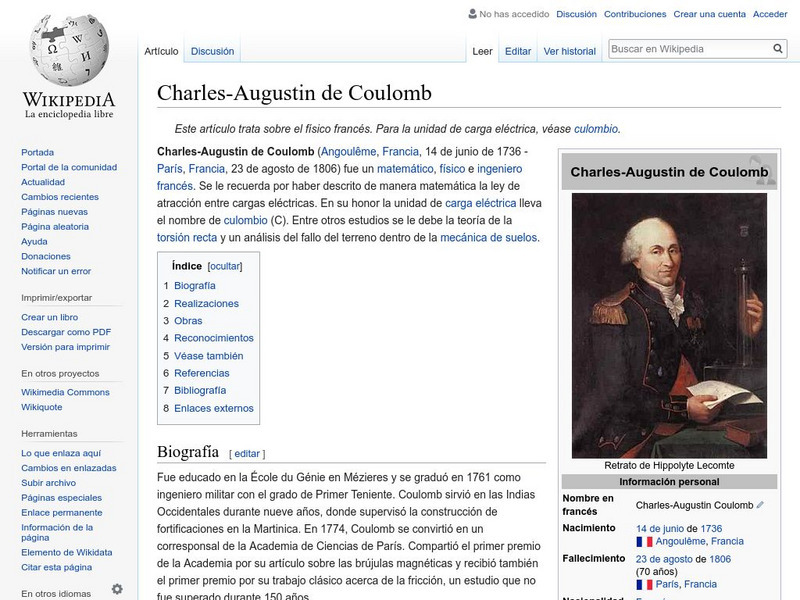Curated OER
Opposites Attract
Pupils demonstrate the attraction of small pieces of paper to a charged plastic rod and conduct experiment with other objects to determine whether they can hold a charge. They then use online applets to apply their experiments to...
Curated OER
Coulomb's Law
Ninth graders observe the relationship between electrical charge and force. In this electrical charge lesson students experiment and find the quantitative relationship between force and the center to center distance between objects.
Curated OER
What is Static Electricity?
In this static electricity worksheet, students will write down 2 causes of static electricity and the effect that occurs with both of their examples.
Georgia Department of Education
Ga Virtual Learning: Physical Science: Electricity and Magnetism
Students learn about static electricity using terms such as friction, induction, and conduction. They also explain and illustrate the difference between alternating and direct current, and understand the relationship among voltage,...
Science Buddies
Science Buddies: How Do Different Materials React to Static Electricity?
Polyester clothing was generally accepted as a popular trend in fashion at one point in history. Now everybody wears cotton, which doesn't get static cling nearly as much. Why are some materials more susceptible to static cling than...
NOAA
Noaa: National Weather Service: Jet Stream Online School for Weather: Lightning
The National Weather Service presents this comprehensive site on lightning. Learn how lightning is created, what makes the sound of thunder, and ways to be safe during a storm. Learning lessons, frequently asked questions, and review...
Georgia Department of Education
Ga Virtual Learning: Ap Physics 2: Electrostatics
In this unit students take a deeper look into charges beyond the simplified 'opposites attract." Students learn to calculate those attractive and repulsive forces and to show how invisible fields are responsible for them.
PBS
Pbs Learning Media: Testing for Static Electricity
In this video segment adapted from ZOOM, cast members show you how to make your very own electroscope. You can use it to find out if an object is electrically charged. [4:17]
University of St. Andrews (UK)
University of St. Andrews: Charles Augustin De Coulomb
A large complete authoritative biography of Coulomb. Five large pictures, over a dozen links to contemporaries, references, a poster, other mathematicians. A fine source.
Scholastic
Scholastic: Dirtmeister's Science Lab: Hair Raising Science
A great experiment to show students how electrons move by static electricity. This site includes web links, a challenge question, and notes for the teacher.
Wikimedia
Wikipedia: Charles Augustin De Coulomb
Spanish-language site lets students discover the life and work of this physicist and engineer, who is known for his studies of electric charges.
Thomas Jefferson National Accelerator Facility
Jefferson Lab: Reading Comprehension Passages
Read and fill in the blanks of science passages which range from easy to very hard. Each blank has a dropdown menu with choices. When you finish, click CHECK MY ANSWERS. If you pick a wrong answer, the right answer will be displayed...
Library of Congress
Loc: Everyday Mysteries: How Does Static Electricity Work?
Learn how static electricity results from an imbalance of electrical charges.














